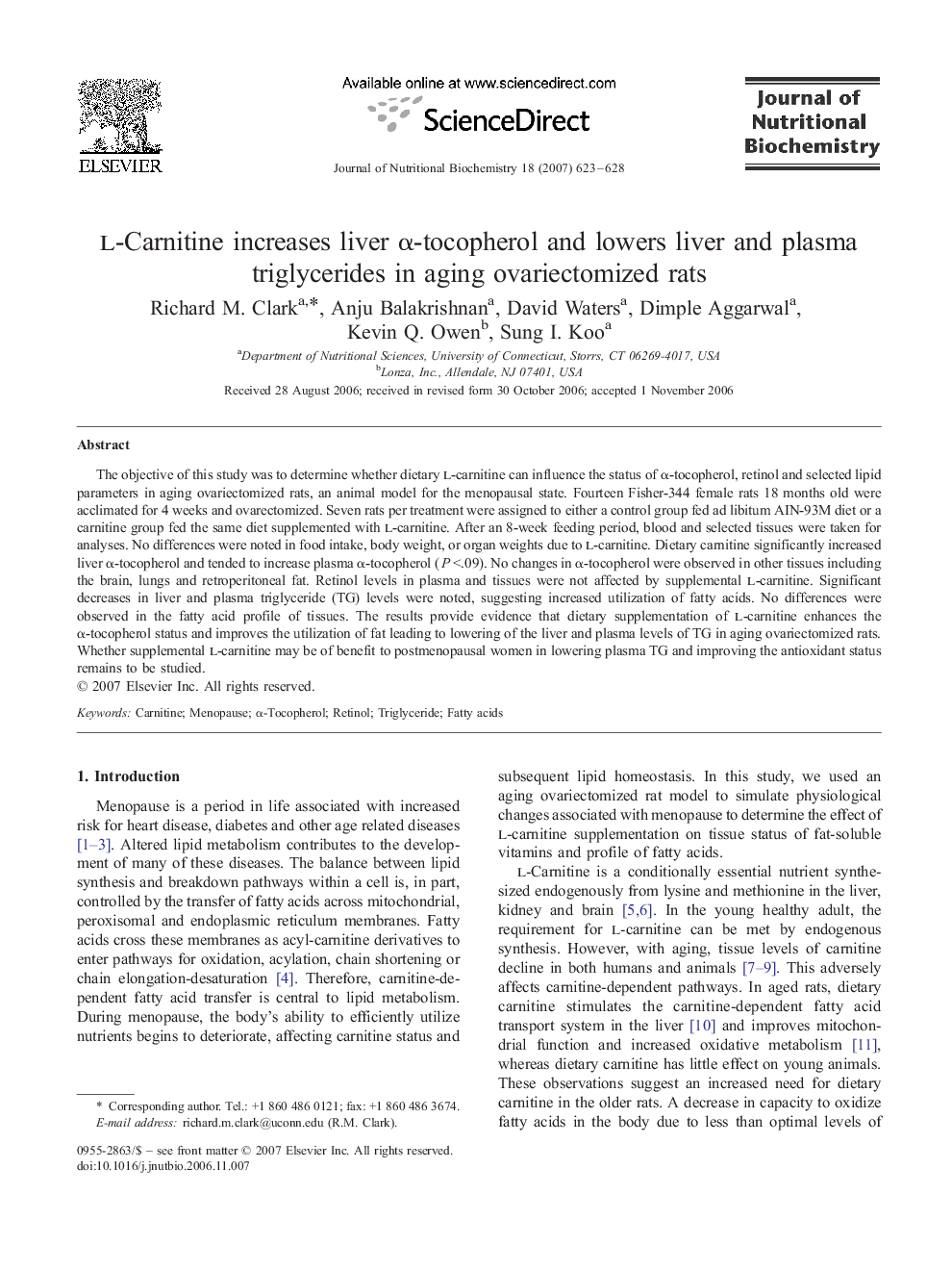| Article ID | Journal | Published Year | Pages | File Type |
|---|---|---|---|---|
| 1991152 | The Journal of Nutritional Biochemistry | 2007 | 6 Pages |
The objective of this study was to determine whether dietary l-carnitine can influence the status of α-tocopherol, retinol and selected lipid parameters in aging ovariectomized rats, an animal model for the menopausal state. Fourteen Fisher-344 female rats 18 months old were acclimated for 4 weeks and ovarectomized. Seven rats per treatment were assigned to either a control group fed ad libitum AIN-93M diet or a carnitine group fed the same diet supplemented with l-carnitine. After an 8-week feeding period, blood and selected tissues were taken for analyses. No differences were noted in food intake, body weight, or organ weights due to l-carnitine. Dietary carnitine significantly increased liver α-tocopherol and tended to increase plasma α-tocopherol (P<.09). No changes in α-tocopherol were observed in other tissues including the brain, lungs and retroperitoneal fat. Retinol levels in plasma and tissues were not affected by supplemental l-carnitine. Significant decreases in liver and plasma triglyceride (TG) levels were noted, suggesting increased utilization of fatty acids. No differences were observed in the fatty acid profile of tissues. The results provide evidence that dietary supplementation of l-carnitine enhances the α-tocopherol status and improves the utilization of fat leading to lowering of the liver and plasma levels of TG in aging ovariectomized rats. Whether supplemental l-carnitine may be of benefit to postmenopausal women in lowering plasma TG and improving the antioxidant status remains to be studied.
